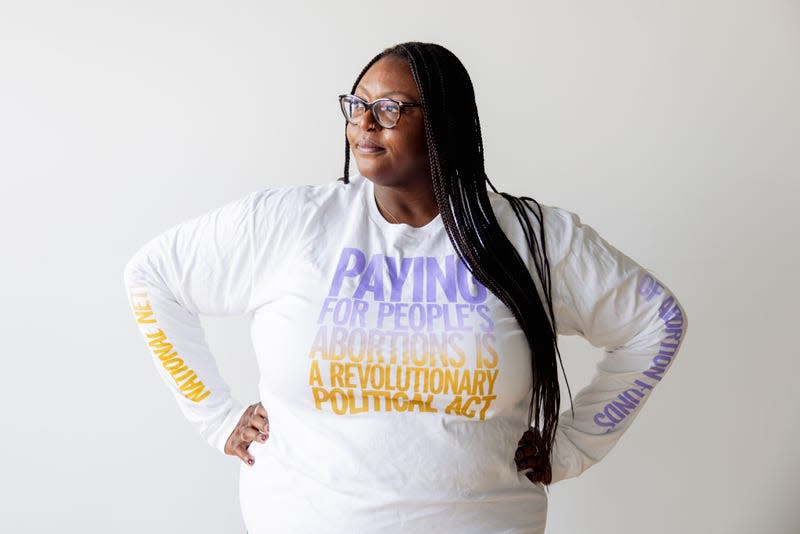Root 100 Honoree Oriaku Njoku Wants Us All To Dream Bigger

It’s hard not to like Oriaku Njoku, the magnetic Executive Director of The National Network of Abortion Funds. They joined the abortion fund in June, just as the Supreme Court overturned Roe v. Wade, throwing decades of precedent protecting abortion out of the window. But the utter chaos surrounding them at all times doesn’t stop them from enjoying a laugh as we chat over Zoom.
“I want every human being to experience joy every single day,” says Njoku, who cautions anyone who wants to lead a movement to take care of themselves in the process. “That’s the other part they don’t tell you about being a leader is that there’s the work, and then there’s doing your work around making sure that you have what you need for your mind, body, and spirit.”
Read more
Aside from Halle Bailey, Here Are Other Black Disney Actors and Characters We Love [Update]
Megan Thee Stallion Becomes 1st Black Woman to Land Forbes 30 Under 30 Cover
Njoku has already had an impressive decade-long career in the reproductive justice space. After working at an abortion clinic for a few years, Njoku founded Access Reproductive Southeast (ARC), an abortion fund serving folks in the South, in 2015. And in June, they were appointed to lead the National Network of Abortion Funds. NNAF coordinates with more than 80 abortion funds in the United States to help pregnant people access abortion care.
Their work hasn’t gone unnoticed. This year they were awarded a spot on the Root 100 list along with other Black change makers. And they also snagged a coveted position on the TIMES 100 Next List, which recognizes “rising stars across industries and around the world.”
Although they’ve clearly accomplished a lot over the last decade, reproductive justice work wasn’t always their passion. “It’s kind of a funny, silly story,” says Njoku with a laugh before diving into a superb origin story. “I had been selling shoes at Bloomingdale’s, and they had let me go in December before the holidays,” she says. “A friend of mine was like... do you want to come to this reproductive justice training?”At that point, Njoku had no idea what that meant. “Like is that being a feminist,” she remembers asking her friend, who told them just to come check it out.
Lo and behold the speaker was none other than Root 100 honoree Loretta Ross (aka the founding mother of the reproductive justice movement). Suffice to say, the speech stuck, and Njoku has been involved in abortion and reproductive justice work ever since.
Part of what drew them to the reproductive justice movement was realizing that they could be all of the parts of themselves and still have a place in the movement.
“All of the things that I had to silo in the past as far as being a black, first generation Igbo, Nigerian, American, Southern, fat, femme, all of these things, had a home in the movement,” they say. “This feels like I can consistently show up authentically, while doing the work around, you know, our human rights to bodily autonomy.”
Being a Black Queer person in a leadership position in the aborition movement helps them to see abortion work as fundamentally an intersectional issue. “For me... as a Black queer woman living in the South and all of the overlapping layers of oppression that I actually experience every day, you know, that is the reason why I’m like, my life is intersectional. So many of our lives are intersectional,” she says.
It’s obviously a tough time to run one of the largest abortion organizations in the United States. But, Njoku remains hopeful about the future. “We can choose to catastrophize the situation that we’re in, we could choose to do this, like gloom and doom sort of thing, or, you know, we could really believe that, in order to get to our collective liberation, there are steps and it’s not going to be easy, and it’s not going to happen overnight,” says Njoku. “But it’s worth the fight.”
Believing a better world than the one we currently live in is possible is what helps them keep pushing. “I’m not 80 something years old, and like, I wish abortion was legal in all 50 states, like, I’m not trying to do that,” she jokes. “It’s just actually believing and following through with that and not being afraid of the follow through.”
More from The Root
Sign up for The Root's Newsletter. For the latest news, Facebook, Twitter and Instagram.

